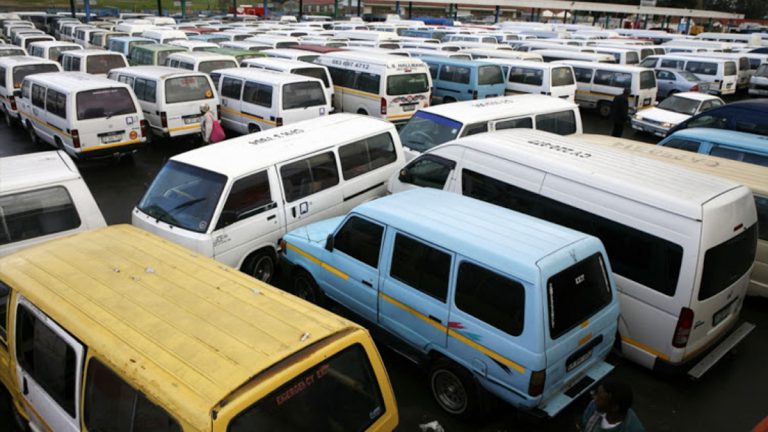
The advent of the COVID 19 virus has plunged us into unchartered waters. A situation that requires agility and decisiveness in our interventions and efforts to arrest the spread of the virus.
Public transport remains one of our biggest risk areas in the spread of the virus. We must, therefore, do everything in our power to protect both the citizens who rely on public transport and those who operate the system from exposure and possible infection.
We indicated from the onset that we are on a steep learning curve and we will regularly review the measures we introduce from time to time in order to achieve the desired outcomes.
Since the lockdown came into effect at midnight of 26 March 2020, we have conducted an assessment of our measures and consulted with the taxi industry.
The consultation process also included relevant structures within government and individual Ministers. As a consequence of this assessment and consultation, we have revised a number of our measures insofar as they relate to public transport.
In consulting with the taxi industry, I have engaged the leadership of the South African National Taxi Council (SANTACO) and the National Taxi Alliance (NTA).
I must commend the taxi industry for their efforts and commitment to playing their part in enabling mobility of the poor and vulnerable in these trying times. Despite the economic challenges facing the industry, we were able to reach an agreement that guarantees the continuous availability of public transport during the lockdown period.
We must all appreciate that the measures we introduce to curb the spread of this virus are about preserving human life, and not about our individual narrow self-serving interests. Every one of us must appreciate this and play their part in eradicating this pandemic.
In our engagements, the taxi industry placed on the table critical issues, some of which we have processed while others remain work in progress. At the time the lockdown was declared, we were in the process of finalizing our plans for the hosting of the National Taxi Indaba, which will be held later in the year, to address a number of critical economic issues confronting the industry.
Among the key issues to be considered by the Indaba is a sustainable economic empowerment model for the taxi industry. This will include a public transport funding model, which must include a possible subsidy regime, in which the taxi industry is a full participant.
Subsequent to these engagements and consultations, we have taken steps to amend Directions relating to Public Transport. Our engagements with our counterparts in government are ongoing to ensure alignment of our Directions with the Regulations published by the Minister of Co-operative Government and Traditional Affairs (COGTA).
We have therefore amended our Directives to give effect to the following measures:
During the lockdown period, the following public transport vehicles must reduce the number of maximum passengers to 70% of the licensed capacity, with no masks as follows:
• A minibus licensed to carry 10 passengers, is limited to carry a maximum of 7 passengers.
• A minibus licensed to carry 15 passengers, is limited to carry the maximum of 10 passengers.
• A midi-bus permitted to carry a maximum of 22 passengers, is limited to carry a maximum of 15 passengers
• A vehicle licensed to carry a maximum of 4 passengers is limited to carrying 50% of its permissible passenger-carrying capacity.
ALTERNATELY
During the lockdown period, all Minibus and Midi-bus taxi vehicles are permitted to load their maximum 100% passenger loading capacity as provided for in their operating licenses, provided that all passengers are wearing masks. The masks must be of the following categories:
(a) Surgical masks
(b) N95 respiratory masks
We require public transport operators to adhere to the Directions on sanitizing vehicles and put measures in place to give effect to social distancing at all material times.
Post the lockdown period, we will give priority to the National Taxi Indaba, which will tackle pressing and strategic issues facing the taxi industry. This industry continues to operate on the fringes of the formal economy despite the fact that they have the largest market share of all public transport modes, in excess of 60%. We are under no illusion that the conflict and violence that continues to define this industry are a consequence of an economic challenge that we need to collectively address as a matter of urgency.
The Taxi Indaba will seek to find consensus on a sustainable economic empowerment model.
In addition, we will review the effectiveness of current interventions, which include the Taxi Recapitalisation Programme and the rollout of the Integrated Public Transport Networks. We will similarly pay particular attention to leadership issues and achieving sustainable unity which must ensure that taxi violence becomes a relic of the past. The Indaba will also focus on regulation and ensuring that government ensures effective regulation, while the industry must commit to the rule of law.
We have no doubt, that the Taxi Indaba will emerge with a blueprint of an industry that is at peace with itself, able to sustain itself beyond government incentives and subject to the rule of law.
Fikile Mbalula – MINISTER OF TRANSPORT